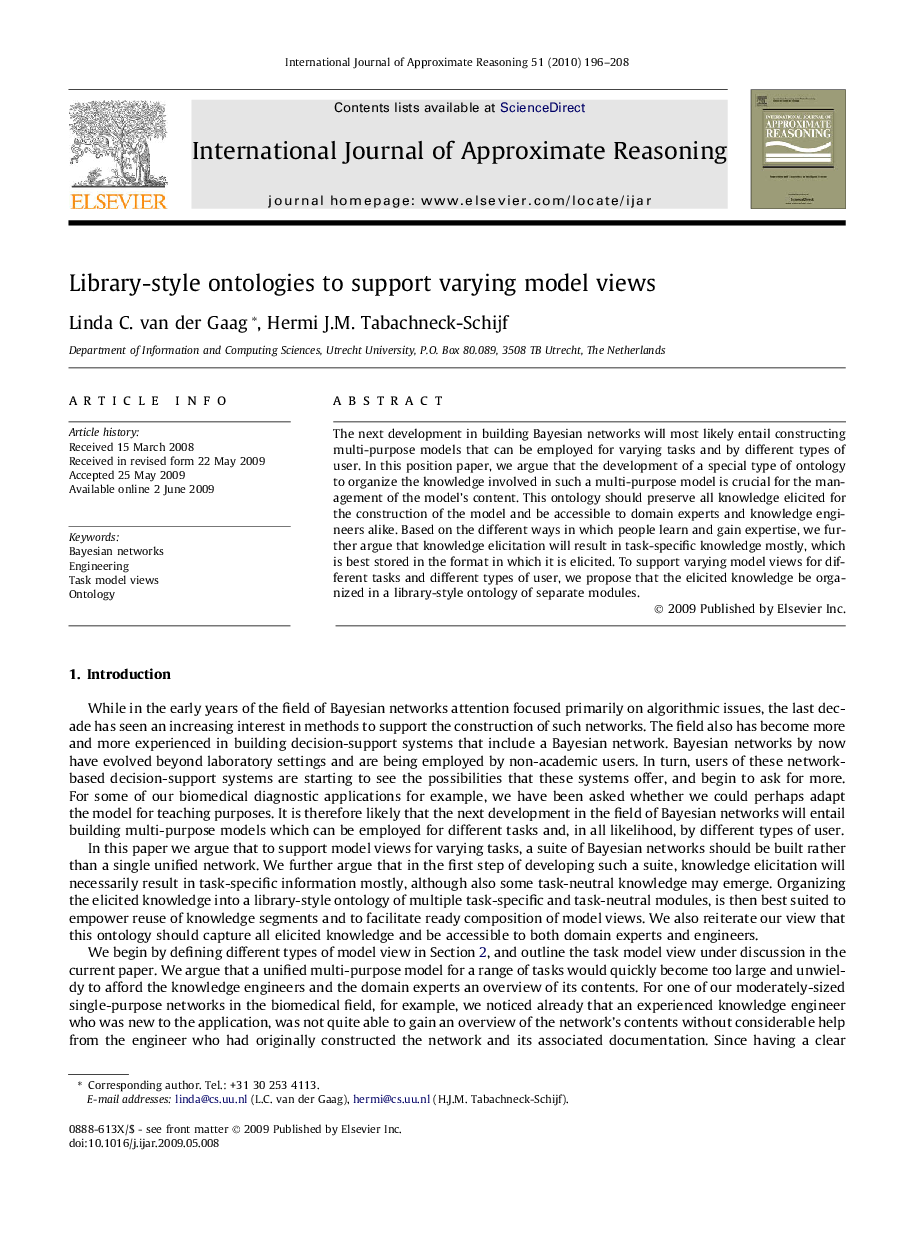| کد مقاله | کد نشریه | سال انتشار | مقاله انگلیسی | نسخه تمام متن |
|---|---|---|---|---|
| 397954 | 1438496 | 2010 | 13 صفحه PDF | دانلود رایگان |

The next development in building Bayesian networks will most likely entail constructing multi-purpose models that can be employed for varying tasks and by different types of user. In this position paper, we argue that the development of a special type of ontology to organize the knowledge involved in such a multi-purpose model is crucial for the management of the model’s content. This ontology should preserve all knowledge elicited for the construction of the model and be accessible to domain experts and knowledge engineers alike. Based on the different ways in which people learn and gain expertise, we further argue that knowledge elicitation will result in task-specific knowledge mostly, which is best stored in the format in which it is elicited. To support varying model views for different tasks and different types of user, we propose that the elicited knowledge be organized in a library-style ontology of separate modules.
Journal: International Journal of Approximate Reasoning - Volume 51, Issue 2, January 2010, Pages 196-208